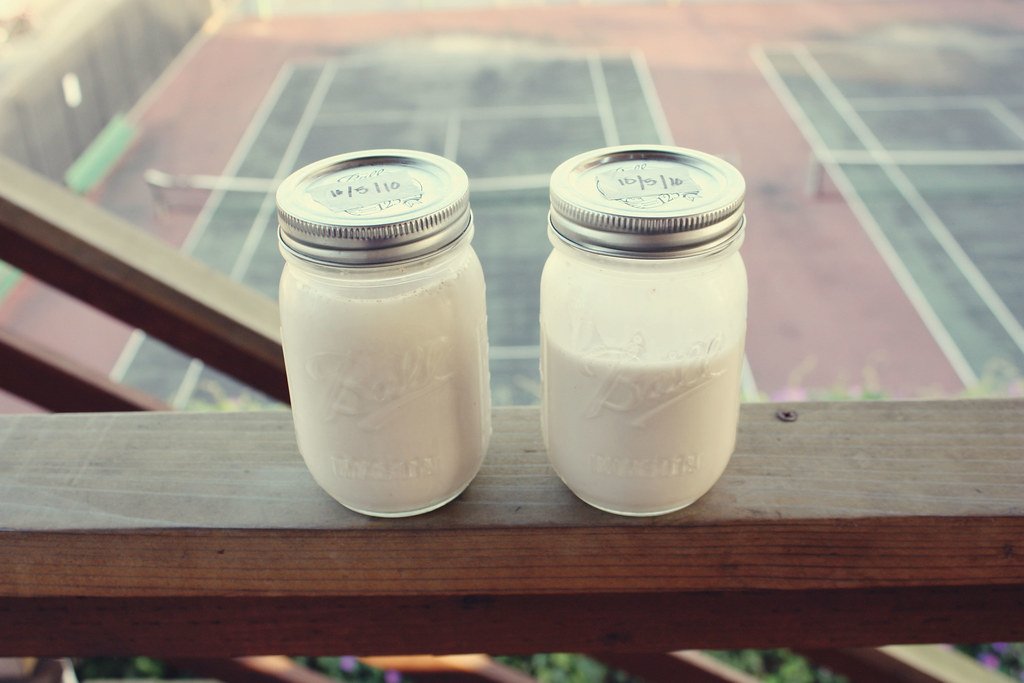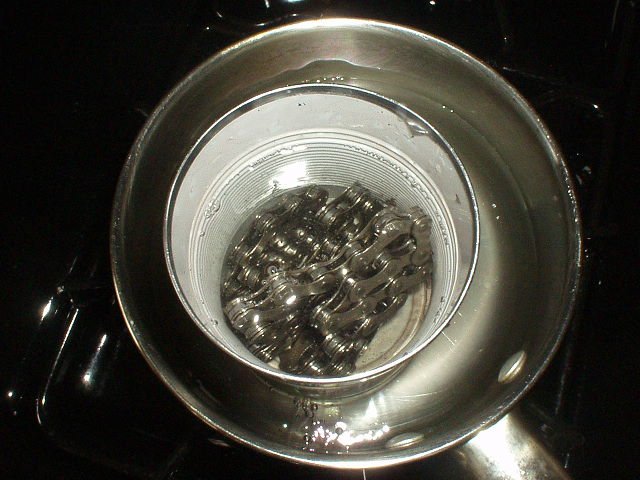Imagine starting your day with a velvety glass of almond milk, bursting with nutrients and the inherent goodness of nature. This liquid delight not only guarantees a luscious texture, but also serves as a brilliant alternative to dairy milk for those seeking a lactose-free or vegan option. Have you ever marveled at the idea of crafting your own almond milk right in the comfort of your own kitchen? If so, this article is your ultimate guide, whisking you away on a culinary adventure as we uncover the secrets of creating the most delectable, nutritious almond milk right at home. Get ready to indulge in the art of homemade almond milk and unlock the magic of this plant-based beverage like never before.
Table of Contents
- Choosing the Right Almonds for Homemade Almond Milk
- The Soaking Technique: Enhancing the Nutritional Value of Almonds
- Blending Perfection: Tips and Tricks for Creamy Almond Milk
- Sweetening Options: Navigating Healthier Alternatives for Flavor
- Storing Homemade Almond Milk: Extending Shelf Life and Preserving Nutrients
- Q&A
- In Conclusion

Choosing the Right Almonds for Homemade Almond Milk
When it comes to making homemade almond milk, selecting the perfect almonds is essential to achieve a creamy and delicious result. Here are some key factors to consider when choosing the right almonds for your almond milk adventure:
- Variety: Not all almonds are created equal. Opt for raw, organic almonds that are specifically labeled as suitable for making almond milk. These almonds are typically free from any additives or preservatives, ensuring a pure and natural flavor.
- Freshness: Fresh almonds will guarantee a more vibrant taste and a smoother texture in your milk. Look for almonds that have been recently harvested and stored properly to maintain their freshness. Avoid almonds that feel soft or have an unpleasant odor.
- Blanching: While blanching almonds is not necessary, it can make the milk-making process easier. If you prefer a creamier almond milk, consider choosing blanched almonds. These are almonds that have had their skins removed, resulting in a lighter and silkier milk.
- Quality Packaging: Always check the packaging of the almonds before purchasing. Ensure that the almonds are tightly sealed in airtight packaging to prevent any moisture or contamination. Additionally, if buying in bulk, make sure that the store has a high turnover rate to ensure the almonds are fresh and haven’t been sitting on the shelves for an extended period.
By taking these factors into account, you’ll be well on your way to selecting the perfect almonds for your delicious homemade almond milk. Remember, the quality of the almonds you choose will ultimately impact the final taste and texture of your milk, so choose wisely and enjoy the creamy goodness!

The Soaking Technique: Enhancing the Nutritional Value of Almonds
Almonds are not only delicious but also packed with essential nutrients that promote overall well-being. By incorporating the soaking technique into your almond consumption routine, you can further enhance their nutritional value. Soaking almonds overnight in water activates enzymes and breaks down their phytic acid, making them easier to digest and allowing for better nutrient absorption.
But what exactly does this mean for their nutritional profile? Well, the soaking technique boosts the bioavailability of various essential vitamins and minerals found in almonds. Here are some key nutritional benefits:
- Increased Antioxidant Content: Soaking almonds helps to release antioxidants, such as vitamin E, which protect the body against oxidative stress and inflammation. These antioxidants also contribute to healthier skin and slow down the aging process.
- Improved Digestibility: Phytic acid found in raw almonds can impair the absorption of minerals like iron and zinc. Soaking almonds significantly reduces the phytic acid content, allowing your body to absorb these important minerals more effectively.
- Enhanced Nutrient Absorption: The soaking process activates enzymes in almonds that aid in breaking down proteins, fats, and carbohydrates. This increased enzymatic activity makes it easier for your body to extract and utilize the vital nutrients present in almonds.
To incorporate the soaking technique, simply place your desired amount of almonds in a bowl, cover them with water, and let them soak overnight. The following morning, rinse them thoroughly and enjoy your enhanced almonds as a snack, in recipes, or as a crunchy topping for salads and desserts.

Blending Perfection: Tips and Tricks for Creamy Almond Milk
When it comes to making delicious, homemade almond milk, achieving that creamy smoothness can sometimes be a bit of a challenge. Luckily, we have some expert tips and tricks up our sleeves to help you achieve almond milk perfection every time.
Avoid skimping on the soaking time: To ensure a creamy texture, it’s crucial to let your almonds soak for an adequate amount of time. We recommend soaking them overnight or for at least 8-12 hours. This softens the almonds, making them easier to blend and resulting in a smoother almond milk.
Blend, blend, blend: The key to achieving that luxurious creaminess is all in the blending technique. Make sure you blend your soaked almonds with fresh, clean water for at least 1-2 minutes. This ensures that all the almonds are broken down to their finest consistency, leaving you with a velvety smooth almond milk.
Strain with care: To remove any remaining almond pulp and achieve a silky texture, it’s important to strain your almond milk properly. Use a nut milk bag or a fine-mesh strainer and gently squeeze out the milk, ensuring that you extract every drop without any unwanted bits. This step can make a world of difference in the final product.
Flavor it to perfection: Almond milk is a versatile base for various recipes, and adding a touch of flavor can elevate it to a whole new level. Experiment with sweeteners like honey, dates, or maple syrup, and don’t shy away from a pinch of salt or a dash of vanilla extract to enhance the taste of your creamy almond milk.
Embrace these tips and tricks, and soon you’ll be whipping up the creamiest almond milk every time. Enjoy the smoothness and deliciousness that comes with homemade almond milk!
Sweetening Options: Navigating Healthier Alternatives for Flavor
When it comes to adding flavor to our food and drinks, there are plenty of options available beyond traditional sugar. These alternatives can be a great way to satisfy our sweet tooth while taking a healthier approach to our diet. Let’s explore some of the exciting options that can add a little sweetness to your life:
- Honey: A natural and versatile sweetener, honey can be used in various recipes and beverages. Packed with antioxidants and minerals, it also offers potential health benefits.
- Stevia: Derived from the leaves of the Stevia plant, this zero-calorie sweetener is a popular choice for those watching their sugar intake. It can be a great option for baking and sweetening beverages.
- Maple syrup: Not just for pancakes, maple syrup brings a rich and distinctive flavor to both sweet and savory dishes. With fewer calories than traditional sugar, it’s a fantastic alternative to consider.
Additionally, there are other lesser-known options worth exploring, such as monk fruit extract, coconut sugar, and agave nectar. While each alternative may have its unique properties, they all present opportunities to enhance your favorite recipes without compromising on taste.
Storing Homemade Almond Milk: Extending Shelf Life and Preserving Nutrients
When it comes to homemade almond milk, ensuring its longevity and preserving its nutrients is essential. By following a few simple guidelines, you can enjoy your delicious creation for longer and reap all the health benefits it offers.
Store it in the refrigerator: Almond milk is highly perishable, so storing it in the refrigerator is crucial to prevent spoilage. Make sure to keep it in an airtight container, like a glass jar or airtight bottle, to maintain its freshness and prevent any contamination.
Use within a week: To maintain the quality of your homemade almond milk, it is best to consume it within one week of preparation. Monitor the smell and taste regularly to ensure it hasn’t gone bad. If you notice any sour or off-putting odors, it’s time to bid farewell to your almond milk and make a fresh batch.
Freeze it for future use: If you have an excess amount of almond milk or want to keep some for later, freezing is a fantastic option. Pour the milk into ice cube trays or freezer-safe containers, leaving some room for expansion. Once frozen, transfer the almond milk cubes into a freezer bag, ensuring to squeeze out any excess air. Frozen almond milk can maintain its quality for up to three months.
Preserve its nutrients: To keep the nutritional value intact, avoid exposing your almond milk to excessive heat or direct sunlight. These elements can degrade the nutrients over time. Additionally, refrain from adding any additional ingredients, such as flavorings or sweeteners, until just before consumption to preserve the milk’s natural goodness.
By maintaining proper storage practices and being mindful of how long you have kept your homemade almond milk, you can enjoy its creamy texture and nutritional benefits for an extended period.
Q&A
What are the health benefits of almond milk?
Almond milk is rich in vitamins and minerals, including vitamin E, calcium, and magnesium. It is a good source of protein and healthy fats, making it beneficial for heart health and promoting healthy skin.
Can I make almond milk at home without any special equipment?
Absolutely! All you need are almonds, water, a blender, and a nut milk bag or cheesecloth. Soaking the almonds overnight before blending can help to soften them for a smoother milk consistency.
How long does homemade almond milk last?
Homemade almond milk can typically be stored in the refrigerator for about 3-4 days. However, it’s important to give it a good shake before each use, as natural separation may occur.
Can I customize the flavor of my homemade almond milk?
Definitely! You can add a touch of sweetness by blending in dates, maple syrup, or honey. For a different flavor twist, try adding a pinch of cinnamon or a splash of vanilla extract. The possibilities are endless!
What can I do with the leftover almond pulp?
Don’t throw it away! You can repurpose the almond pulp in various ways. It can be used as a gluten-free flour substitute in baking, added to smoothies for extra fiber, or even used as a topping for salads or yogurt.
Is homemade almond milk cost-effective compared to store-bought options?
While almonds can be more expensive than regular dairy milk, making your own almond milk is usually more cost-effective than buying it from the store. Plus, you have the added benefit of knowing exactly what ingredients are used.
How many almonds do I need to make a batch of almond milk?
A general ratio is 1 cup of almonds to 4 cups of water. You can adjust this ratio to your preference for a thicker or thinner consistency.
Can almond milk be substituted for regular milk in recipes?
Yes, almond milk can often be substituted in recipes that call for regular milk. However, keep in mind that almond milk has a milder flavor and slightly thinner consistency, which may affect the overall taste and texture of certain dishes.
In Conclusion
As we pour the creamy goodness of homemade almond milk into our glasses, we can’t help but revel in the satisfaction of creating something wholesome and nutritious with our own hands. By embarking on this adventure in almond enlightenment, we’ve managed to unlock the secrets of making almond milk right from the comfort of our very own kitchen.
From the moment you soaked those delicate almonds overnight, to the rhythmic symphony of blending and straining, each step was a testament to your commitment to a healthier and more sustainable lifestyle. And now, as you bask in the frothy result of your labor, it’s time to reflect on the journey we’ve shared.
Gone are the days of uninspiring store-bought cartons. By opting for the DIY approach, you’ve taken control of the ingredients transforming your almond milk into a potion of goodness, free from artificial additives and mystery substances. No longer will you worry about hidden sweeteners or preservatives. You have become the master of almond alchemy, choosing the purity and nutrition of your homemade elixir.
But the benefits of crafting your own almond milk don’t stop there. Oh no, dear reader! With every sip, you’re embracing a sustainable lifestyle, reducing your carbon footprint, and savoring the satisfaction that comes from nurturing Mother Earth. By skipping the store-bought variety, you’re saving on wasteful packaging, supporting local almond growers, and reducing transportation emissions. A small act of kindness towards the environment that makes a mighty impact.
As you share your newfound wisdom with family and friends, their taste buds will be tantalized by the rich and authentic flavor of your homemade masterpiece. Take pride in the simplicity of your recipe, the sheer versatility that allows you to infuse your almond milk with delightful flavors. From a hint of vanilla to a sprinkle of cinnamon, the possibilities are as endless as your imagination. With each experiment, your confidence will grow, and your creativity will flourish.
So, dear readers, as we draw the curtain on our almond-infused adventure, remember that the power to nourish yourself and those around you lies in your own hands. Embrace the quirky joy of homemade almond milk and savor the satisfaction that comes from creating a nutritious elixir. Bid farewell to store shelves and embolden your culinary journey, one creamy sip at a time. Rejoice in the knowledge that you hold the key to unlocking the wholesome secrets of almond milk right in your very own kitchen.
As an affiliate, my content may feature links to products I personally use and recommend. By taking action, like subscribing or making a purchase, you’ll be supporting my work and fueling my taco cravings at the same time. Win-win, right?
Want to read more? Check out our Affiliate Disclosure page.